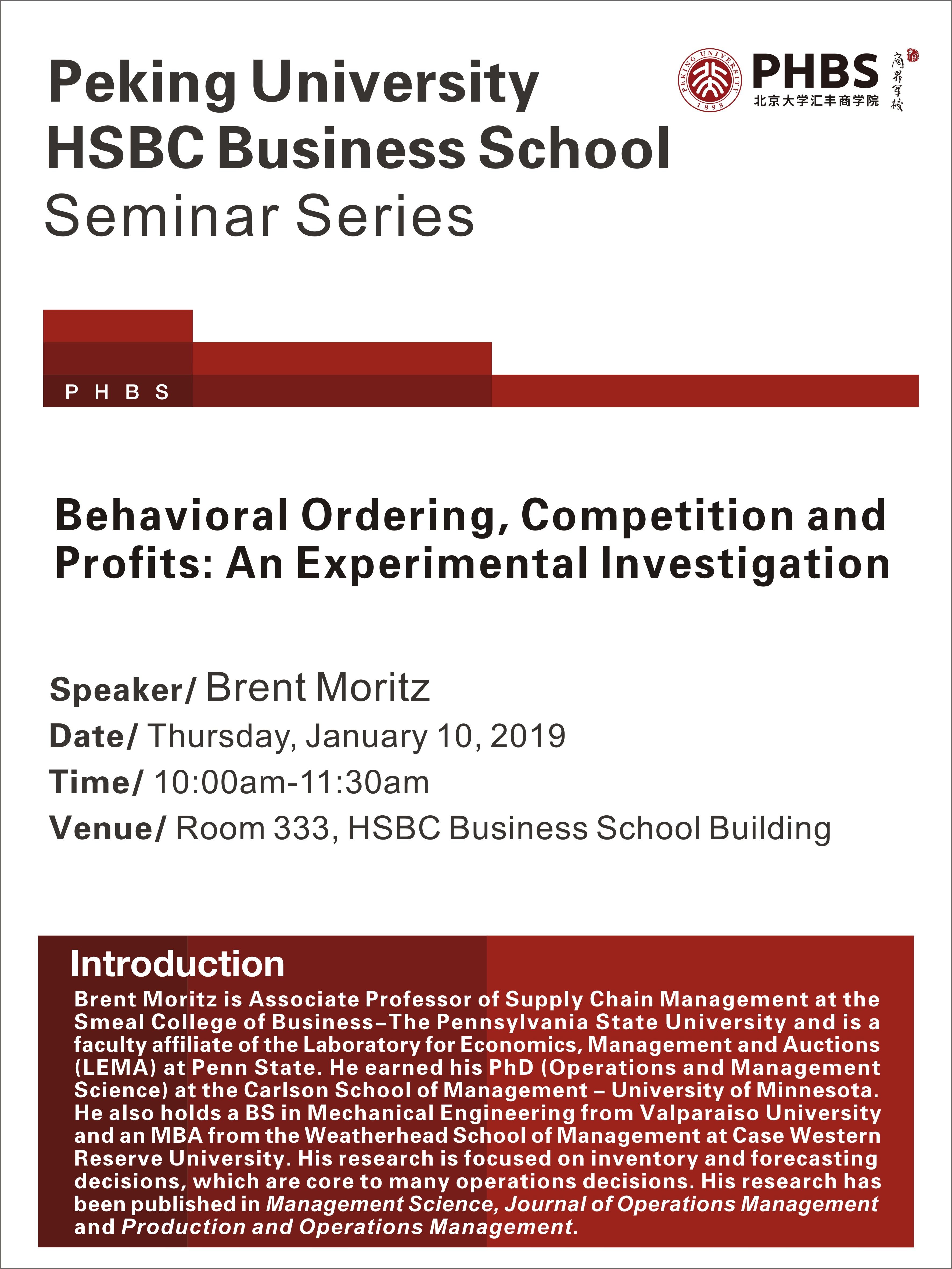
We investigate the impact of behavioral ordering on profitability under competition. Specifically, we use controlled laboratory experiments to evaluate the differences in profits between a behavioral competitor where a human places orders, and a management science-driven competitor where orders are placed according to one of several plausible policies based on existing literature and managerial practice. Unlike the full-information game-theoretic models that assume rational decision-makers, these policies mimic practical situations by using less information and do not assume that their human competitors make fully rational decisions. Most prior literature focuses on non-competitive settings, where behaviorally-biased deviations from optimal order quantities result in small expected profit losses. The main result of our experiments is that human competitors receive a substantially lower profit than the equilibrium expected profit, while their competitors receive substantially higher profits, for a net difference several times larger than what was previously reported.









